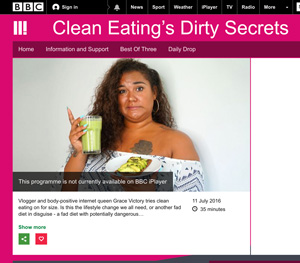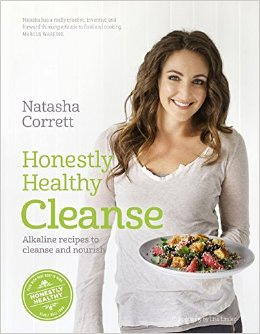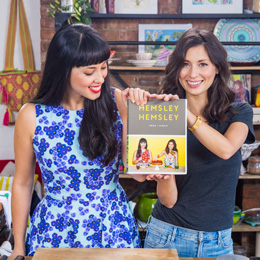Today I’m writing about a topic I’ve become quite passionate about and that’s “clean eating” and all the new clean eating dietary approaches that are coming out.
 I was encouraged to do this after watching the BBC documentary recently shown called “Clean Eating’s Dirty Secrets”. I also watched some other Youtuber’s reviews about the show, as well as participating in some comments with their creators.
I was encouraged to do this after watching the BBC documentary recently shown called “Clean Eating’s Dirty Secrets”. I also watched some other Youtuber’s reviews about the show, as well as participating in some comments with their creators.
Speaking of the comments I was reading, one thing that became apparent is a lot of clean eating adopters seem to have a lot of theories as to why you shouldn’t trust the advice of medical professionals (such as dietitians for example). One theory that really stuck out for me is that dietitians are being brainwashed by the government. This is because they’re participating in a conspiracy with dairy farmers who are paying the government to place dairy in the food pyramid. And it’s the food pyramid dietitians look at to help advise patients with their nutritional needs.
I think that’s complete nonsense. Why? Dietitians have to follow guidance from The Manual of Dietetic Practice (among other places). This manual is developed with The BDA (British Dietetic Association) which actually is an independent body from the government.
With that in mind, I’m going to use this evidence-based Manual of Dietetic Practice (used by healthcare professionals) to show you a few more points as to why clean eating isn’t as good as we’re made out to believe.
The Alkaline Diet
 This is headed up by Natasha Corrett and was featured on BBC’s Clean Eating’s Dirty Secrets. The idea is to eat alkaline-based foods. The reason is because the body is always maintaining a PH level between acid and alkaline. The idea is that if you eat too many acidic foods, it puts the body under stress because it’s always trying to maintain the PH level.
This is headed up by Natasha Corrett and was featured on BBC’s Clean Eating’s Dirty Secrets. The idea is to eat alkaline-based foods. The reason is because the body is always maintaining a PH level between acid and alkaline. The idea is that if you eat too many acidic foods, it puts the body under stress because it’s always trying to maintain the PH level.
The thing is, the body’s designed to maintain a PH level. So in my opinion, it’s not causing any extra stress because it’s a normal bodily function. It’s like saying “if it’s hot outside, don’t go outside because it'll cause you to sweat and sweating will cause extra stress on the body”. However, we all know the body is designed to sweat and it’s a perfectly healthy bodily function.
For this reason, I feel the alkaline diet isn’t worth the paper it’s written on.
Deliciously Ella
The BBC documentary showed a cracking quote from Deliciously Ella explaining why she feels milk is bad for humans. The quote said:
“…when we drink milk, calcium is drawn from our bones in order to rebalance the acidity it causes which can result in a calcium deficit which is anything but good for our bones!”
For me, that sounds like complete waffle! Looking in the dietetic manual, it clearly shows milk at the top of the list of foods recommended as good sources of calcium.
I’d love to know what qualification Deliciously Ella has to be able to say that. Maybe that’s the problem – because she’s not a registered dietitian and is not regulated by anyone who can say “you can’t say that”, she can give all kinds of non-evidence based advice.
These people aren’t regulated, so they can say what they want, as passionately as they want. And that (in my opinion) is why they have such a big influence on people.
Gluten-free and the Hemsley Sisters
 Gluten-free is very much preached by Hemsley and Hemsley (who only develop gluten-free recipes). Fair enough, gluten-free isn’t “clean eating” if you’ve been diagnosed with coeliac disease or a gluten intolerance. However, a lot of people out there promote gluten-free for other reasons e.g. cleansing and digestion etc.
Gluten-free is very much preached by Hemsley and Hemsley (who only develop gluten-free recipes). Fair enough, gluten-free isn’t “clean eating” if you’ve been diagnosed with coeliac disease or a gluten intolerance. However, a lot of people out there promote gluten-free for other reasons e.g. cleansing and digestion etc.
Looking at the dietetic manual, there is only one reason suggested (that I can find) as to why you should be prescribed a gluten-free diet – if you have coeliac disease. Coeliac disease prevails in 1 out of 100 people (1% of the population).
So if you’re in the 99% of the population who don’t have coeliac disease (most likely), there appears to be no extra benefit of going gluten-free. Our bodies seem to be perfectly capable of dealing with gluten and have done for 100s of years.
Cutting out different food groups
This one really winds me up! It’s when we hear people going carb-free, dairy-free, meat-free (for non-personal reasons) etc. I’d like to refer to a quote in the dietetic manual about malnutrition. Malnutrition is:
“A state of nutrition in which a deficiency or excess (or imbalance) of energy, protein and other nutrients cause measurable adverse effects on tissue/body form (body shape, size, composition), body function and clinical outcome”
I’m perfectly aware malnutrition is an extreme case and you can get sources of protein from vegetables (for example) if you’re following a plant-based diet. However, my point is we’re losing the idea of what a healthy balanced diet is – it’s getting a balance of all the different nutrients.
If we’re starting to cut out things like carbs and protein etc, we will start seeing adverse effects (maybe not to the degree of malnutrition) which our bodies aren’t designed to deal with - caused by cutting out really important food groups.
In conclusion
After touching on a few clean eating approaches, my major concern is there are so many people on social media and the internet promoting clean eating who have far less, or no qualifications compared to medical professionals.
However, these people have much more of an influence on people than actual medical professionals, who can only give evidence-based advice.
I feel the reason medical professionals (e.g. dietitians) don’t go on the internet preaching and banging on about the right way of eating, like clean eaters, is because they’re medical professionals.
They’re governed by The BDA and Health and Care Professions Council (HCPC). If they went on the internet and preached like “clean eaters”, it would probably be deemed as unprofessional.
So in my opinion, you cannot beat the overwhelming evidence dietitians or well-qualified nutritionists have to practice by.
All we need to do is eat a healthy balanced diet – it’s that simple. It’s what’s normal, it’s what our bodies are used to and it’s what’s healthy. Otherwise, I’m really worried we’re going to lose sight of what is a normal, healthy way of eating.
Watch my response and review of BBC's Clean Eating's Dirty Secrets below.

 This post was written by
This post was written by 


